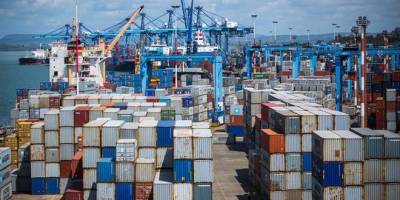The Industrial Advisory Council (IAC) convened on Thursday to deliberate on a strategic roadmap aimed at achieving a substantial increase in Pakistan’s exports to $100 billion.
Chaired by Dr Gohar Ejaz, the Federal Minister for Industries and Production, the inaugural meeting marked a significant step towards realizing the ambitious vision of “Vision Pakistan: Road to $100 billion Exports.”
The discussed roadmap emphasized key measures, including the removal of cross-subsidies from power tariffs for industrial consumers, duty cuts, and rationalization of gas prices. The objective is to streamline bureaucratic processes, reduce red tape, and boost Pakistan’s export capabilities.
During the meeting, it was highlighted that cross-subsidies in electricity and gas tariffs often fund inefficiencies in the power sector and the government’s social obligations. The roadmap specifically underscores the need to eliminate cross-subsidies from power tariffs for industrial consumers.
Anticipating the operationalization of the Carbon Border Adjustment Mechanism (CBAM) in the EU in 2026, the roadmap emphasizes power sector reforms, urging the fostering of clean and competitive energy markets. It also advocates for the facilitation of clean energy wheeling through business-to-business contracts.
To address the challenge of high emissions content in exported products, the roadmap calls for an increase in the cap on solar net-metering for industrial consumers from 1MW to 5MW. Gas price rationalization is recommended, coupled with a substantial investment in gas exploration to reduce reliance on imported LNG and supplement depleting indigenous gas supplies.
The roadmap addresses the need for fair distribution of the tax burden, advocating for a separation between policy-making and tax administration. It suggests taxing profits instead of turnover and maintaining regionally competitive tax rates to attract investment.
Importantly, the roadmap underscores the necessity of rationalizing import duties for export-led growth, reversing anti-diversification biases in export incentives, and promoting the export of a broader range of goods and services.
Other key focal points include reducing costs associated with liquidating non-viable firms, strengthening insolvency procedures, streamlining business licensing and procedures for entrepreneurs, and promoting digital connectivity and skill development.
Additionally, the roadmap recommends incentivizing firm growth through fiscal and tax incentives, facilitating access to credit, and encouraging significant investment in research and development, innovation, and invention. It also suggests incentivizing foreign direct investment (FDI) in export-oriented activities.


























For that, you will have to forgo evil, that is Islam and adopt some other religion.
Rasool’s Ideology will do only further harm.